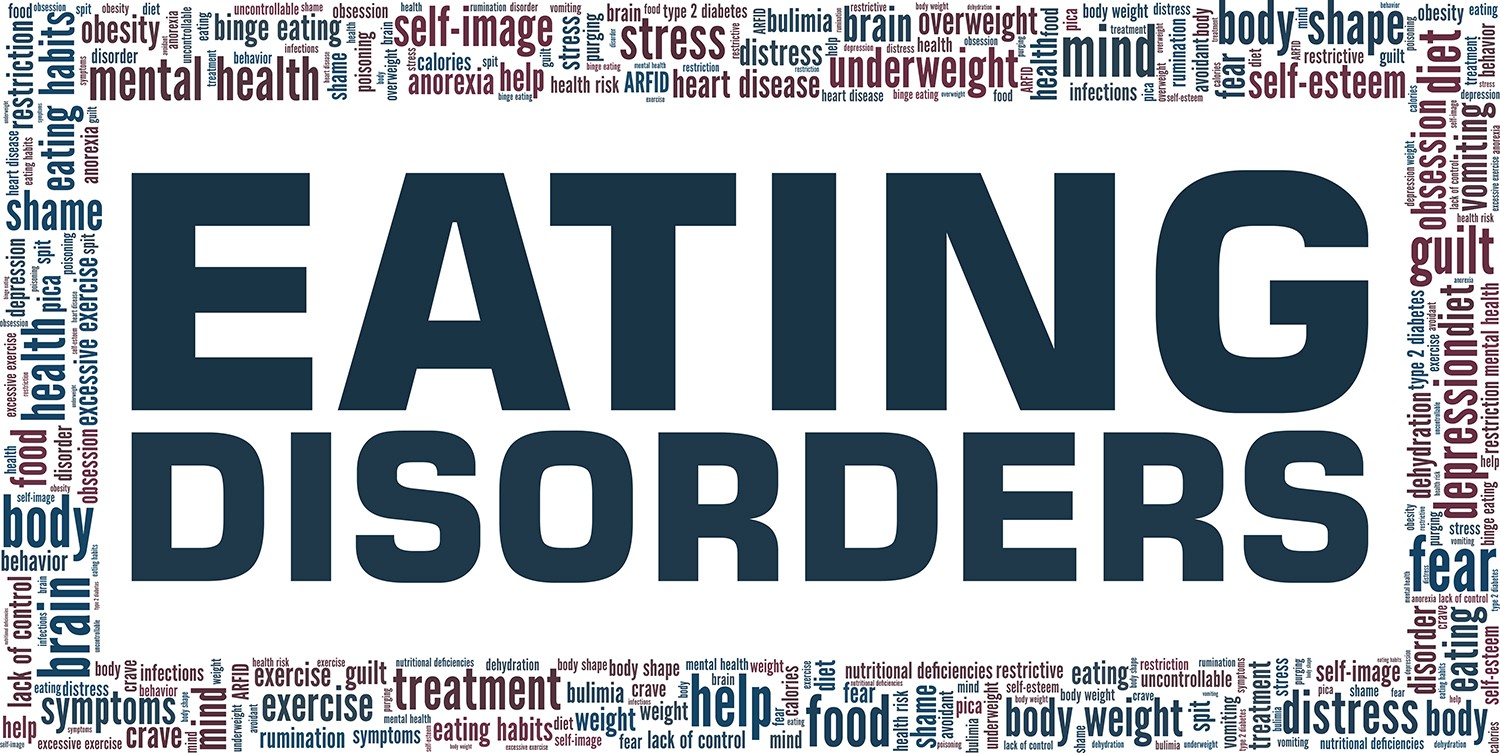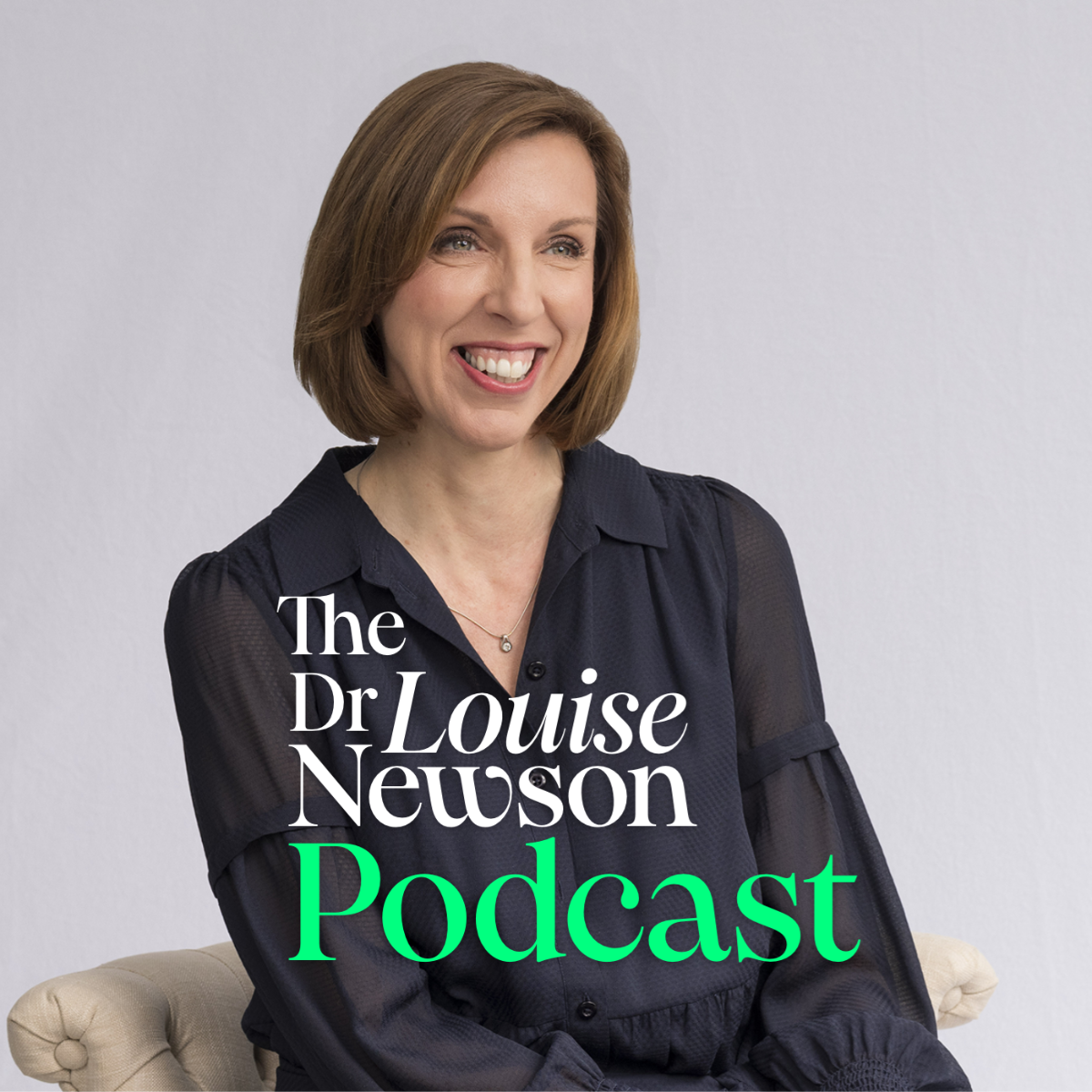Why disordered eating can increase in time of hormonal change and how to manage it
• Eating disorders disproportionately affect women
• Increase in disordered eating behaviour can occur during times of hormonal change, such as pregnancy, postpartum, perimenopause and menopause
• Some women experience a worsening or resurfacing of eating disorders during menopause, while some may develop an eating disorder for the first time
Content advisory: this article includes themes of mental health and suicide
Prevalence of eating disorders is increasing worldwide, with an estimated 1.25 million people affected in the UK alone [1]. However, the true number is likely to be higher still as many people do not seek help from healthcare services.
Eating disorders disproportionately affect women, with 90% of those affected being female [2]. Because adolescents and young adults are at highest risk of developing an eating disorder, you could be forgiven for thinking they don’t affect women during perimenopause and menopause.
However, evidence shows that middle-aged women (approximately 40-65 years old) experience considerable rates of disordered eating behaviours [3], and that this can be associated with perimenopause. In fact, a diagnosis of an eating disorder in midlife may be more common in those women simultaneously navigating perimenopause than in midlife women who remain pre-menopausal owing to the significant hormonal fluctuations encountered in perimenopause [4].
One study on eating disorders among women in their 40s and 50s found a prevalence of 3.6% [5], while studies on disordered eating behaviours report varying rates of 10.8%-15.7% [6].
What are eating disorders?
According to NICE, eating disorders are characterised by persistent disturbance of eating or eating-related behaviour, which leads to altered intake or absorption of food and causes significant impairment to health and psychosocial functioning [7]. The underlying causes of eating disorders vary, but can include physical, psychological, developmental, social and cultural factors.
Well known eating disorders include anorexia nervosa, bulimia nervosa and binge eating disorder. However, there are numerous types of eating disorders and eating-related behaviours. For instance, atypical eating disorder, which is symptoms of an eating disorder that don’t meet the diagnosis criteria (for example, having anorexia symptoms but weight is within a normal range) is the most common type.
Other types of eating disorder include ARFID (avoidant or restrictive food intake disorder), Pica (craving non-food items), and rumination disorder (regurgitating swallowed food). Weight and shape concerns are not a feature in these disorders.
How are eating disorders and hormones linked?
Periods of hormonal change, such as puberty, pregnancy and post-partum have long been identified as times of vulnerability for increased disordered eating [8,9]. But some women experience a worsening or resurfacing of eating disorder symptoms and behaviours during perimenopause or menopause, while some may develop an eating disorder for the first time.
Women who experience premenstrual syndrome (PMS) or premenstrual dysphoric disorder (PMDD) are also at higher risk of eating disorders. Symptoms of PMS and PMDD include disturbances in mood and changes in appetite, as well as bloating, which may trigger binge-eating and/or purging [10]. In a study, women with PMDD were seven times more likely to have bulimia nervosa, while those with PMS were twice as likely, as women without these conditions [10].
RELATED: PMS, PMDD and menopause
A common symptom of menopause is weight gain and a redistribution of body weight around your middle. On average, women may gain half a kilo per year during perimenopause, in the absence of HRT [11]. Weight gain can leave some women dissatisfied with their body appearance, and body dissatisfaction is associated with disordered eating [12].
Societal and social pressure to have a thin body and youthful appearance continue to affect women’s wellbeing in midlife – one study of 1,083 women aged 50-69 years old, found more than 90% wished to lose weight and more than 70% dieted [13].
Another common symptom of menopause is low self-esteem, and the combination of weight gain and low self-esteem may make perimenopausal women susceptible to the development of eating disorders through desperate efforts to lose weight or regain their pre-menopausal shape.
RELATED: Low self-esteem and menopause
Due to the increased risk of diseases such as type 2 diabetes and heart disease in menopause, compounded by weight gain, some women may begin to make healthier food choices. Undoubtedly, this is a positive behaviour change, but for some women eating healthy food can become a risky, obsessive, psychologically limiting, and sometimes physically damaging behaviour, as they repeatedly fight against the sentiments of being unclean because of the food they have eaten. This damaging pattern of eating healthy foods is known as orthorexia nervosa. One cross-sectional study including over 1,000 women, found that postmenopausal women are more prone to orthorexia nervosa than premenopausal women [12].
In addition, menopausal women are susceptible to experiencing psychological symptoms such as depression, stress, anxiety, and body image concerns. This can be exacerbated by disturbed sleep, a common menopausal symptom. A combination of poor mental health and poor sleep leads to psychological distress, which has been associated with higher rates of disordered eating habits such as emotional eating and over-eating [8].
What’s the impact of eating disorders during menopause?
Eating disorders can have an impact on your health, and there are some particular considerations during perimenopause and menopause.
Symptom overlap
When an eating disorder leads to underconsumption of calories, extreme exercise, or a very limited intake of certain foods, your body is placed under extreme stress as a result of a huge energy deficit. This can affect the signalling pathway from your brain to your ovaries, and shut down the production of sex hormones. Ovulation may no longer occur, and periods frequently stop.
When a woman no longer has a period because of an eating disorder this is called functional hypothalamic amenorrhoea (FHA). Women with FHA typically have low hormone levels. Therefore, they may have the same symptoms to those that occur in perimenopause and menopause such as:
• Feeling very tired
• Dizziness
• Problems with digestion
• Low mood
• Anxiety
• Irritability
• A change in temperature control – you may feel very cold but may also experience night sweats.
Risk of future diseases
Women with FHA will be at higher risk of developing certain diseases such as osteoporosis. Women who go have an early menopause – before the age of 45 years – will also be at a greater risk of osteoporosis. Both FHA and early menopause share the same thing in common, low hormones [14].
Eating disorders such as binge eating disorder and bulimia can increase the risk of type 2 diabetes and heart disease. Low hormones during and after menopause can also increase the risk of developing type 2 diabetes and heart disease.
Disordered eating behaviours can also have significant consequences on short- and long-term health.
Susceptible to depression and suicide
Individuals suffering with an eating disorder will experience dysregulation of the chemical dopamine in the brain. Low estrogen is associated with dopamine dysregulation, or more specifically, a lack of dopamine [15], and fluctuations in sex hormone levels can alter levels of dopamine (and serotonin, known as the happy hormone). As a result of changes in dopamine, perimenopausal and menopausal women and women with eating disorders may be more susceptible to developing depression and suicidal behaviours.
Studies have shown that eating disorders are associated with a significantly increased risk of suicide attempt [16]. In women, those aged 50-54 years have the highest rate of suicide in the UK, which falls in the typical age range for perimenopause and menopause [17]. One in ten women report experiencing suicidal thoughts owing to menopause [18]. Studies have shown that suicide attempts may be more frequent when estrogen and progesterone levels are low, which can be the case both during menopause and in women with eating disorders [19].
RELATED: Am I depressed or menopausal?
How can eating disorders and menopause be treated?
The treatment approach for both eating disorders and perimenopause and menopause is holistic. The treatment of an eating disorder will require input from a range of different healthcare professionals and often will encompass psychological treatments and, where appropriate, specific medications.
Eating disorders inflict huge stress on your body, which can affect many hormonal systems including your sex hormones such as estrogen, progesterone and testosterone, thyroid hormones, and vitamin D, which is also a hormone. As a result, hormone replacement often has a role to play in the multi-faceted approach of treating eating disorders. HRT is the first-line treatment for menopause related symptoms and can be prescribed for perimenopausal and menopausal women who have an eating disorder or in those with FHA.
Body identical HRT and testosterone do not usually cause weight gain, unlike synthetic hormones that are in contraceptives.
RELATED: Will HRT make me gain weight?
In addition to improving menopause symptoms, HRT protects your future health. HRT helps protect your bones against osteoporosis, a condition that weakens your bones and is a common complication of eating disorders and early menopause. HRT is, in fact, licensed as a treatment to prevent osteoporosis in the UK.
Where can I get help with my eating disorder or more information?
If you are struggling with an eating disorder or know someone who is, please reach out for help.
Your GP can refer you to local services for your area. In addition, the charity BEAT has a helpline and many online resources, while the National Centre for Eating Disorders is another good source of information.
Contact the Samaritans for 24-hour, confidential support by calling 116 123 or email jo@samaritans.org.















